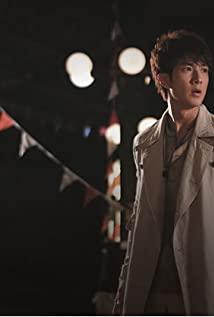It is said that a girl always tries to watch a horror movie by herself, but as a girl whose roommate has to cover her ears when watching a horror movie, watching "Mystery Nest" is indeed challenging herself. Although it is not as thrilling and suspenseful as "Jingcheng No. 81", the screams of many girls can still be heard in the cinema, so it is recommended that girls go to see it with their boyfriends. If you're single, bark loudly. At the beginning of the film, the method of flashbacks is used to point out the reasons why Jia and others went to western China. The sentence "I am good at making the impossible possible" points out the center of the film: looking for the elixir in the secret tomb. The main clue is: Jia (Li Bingbing) and others fought a decisive battle with mutant spiders in the mausoleum to rescue their younger brother (Wu Zun).
Personally, what I find most disgusting is the final battle with the biggest spider in the film, and the scariest part is the part in the desert hut at the beginning of the film. The little sister of the film repeated 3 times "I don't want to go..." This sentence is not correct. It not only laid the groundwork for the thrilling adventures below, but also constantly rendered a terrifying atmosphere, making the audience in a state of tension and anger. Different people may have different opinions on the special effects part, but I think those spiders are really disgusting to me, and the sound of the spiders also makes me horrified, especially the "hissing" sound of the spiders after all.
Of course, the method of interlude is also used in the film, and the pictures of the sister and brother in the maze are repeated many times. Some people may wonder, "Why does the screenwriter want to repeat it?" I summed up 3 points.
First: As an interlude, the parents and family backgrounds of the Ming sister and brother will make the film have causes and consequences and make the clues more obvious.
Second: This is also a "montage" method. The multiple screen transitions make the audience feel the deep relationship between the sister and the younger brother, and instantly worry about the life safety of the younger brother. The most important thing is to repeat the last time that the younger brother finds the elder sister to embrace The scene is also the end of the film: in the end they are all rescued.
Third: "Not everyone who gets lost has lost his way!" This is a famous sentence that has appeared on the screen many times. I believe that everyone who has seen it will be impressed. It also touches our hearts and gives us A space for contemplation, after connecting with life, it is like an old man pointing out the direction for young people and inspiring life.
What is more worth mentioning is that the film contains many traditional Chinese cultures, such as: the construction of canals, the ancient Chinese emperors, there is a rich archaeological culture here, of course, this is also closely integrated with the historical background of China: ancient emperors Passionate about finding the elixir of life, isn't there a record in history that with the development of alchemy, one of the four great inventions has been promoted: the production of gunpowder? There is also a lot of biological knowledge, such as spiders preying on spider webs and living in water. Finally, the proliferation of spiders also aroused people's reflection on animal variation in scientific research, and inspired people to live in harmony with nature and to follow the objective laws of the development of things.
But this film also has shortcomings, the biggest flaw is: all Chinese subtitles. It's just that the interlude of the rescue background in Nepal is a bit tough. It may be to add mystery to the male protagonist's personal background, but it fails to achieve the desired effect.
Finally, I want to end the film review with a meaningful sentence in the film: "Sometimes, when we rescue others, we try our best to be worthy of ourselves."
View more about 7 Guardians of the Tomb reviews











